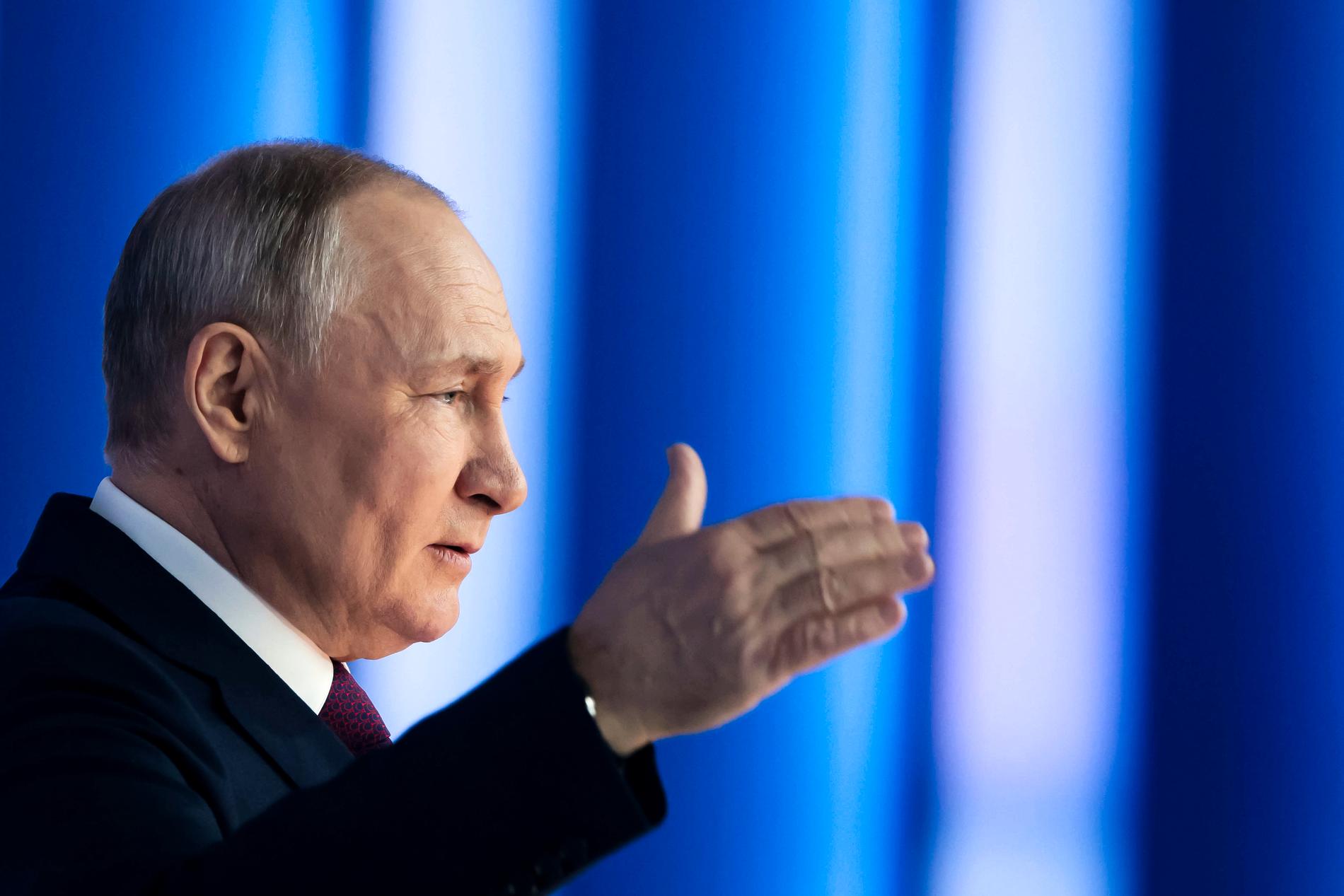
Wolfgang Hansson
The crack in the united front to support Ukraine
Published: Today 17.02
This is a commenting text. Analysis and positions are the writer's.
COLUMNISTS
Despite all assurances to the contrary, it has always felt like it is a matter of time how long the EU-US united front in support of Ukraine lasts.
Now cracks are starting to show.
Poland and many of the other countries that were once vassal states of the Soviet Union have heard from those who pushed the hardest the line that Ukraine's freedom must be defended at all costs. Poland is the country in Europe that has received the most Ukrainian refugees. Without complaining.
Other eastern countries that were very reluctant during the refugee crisis in 2015 have also opened their borders to the Ukrainians.
Poland and the Baltic states are among those who pushed hardest for the West to send advanced weapons to Ukraine. Poland was the first to authorize combat flights to Ukraine.
But now it is starting to growl in the depths of the people.
The reason is grain from Ukraine that ends up in the former Eastern Europe and depresses the prices in these countries.
Poland, Hungary and Slovakia have temporarily imposed an import ban on Ukrainian grain. But also of other agricultural products such as meat, milk and vegetables. Bulgaria may soon join the crowd. The ban also applies to transit.
The European Commission claims that these bans violate EU rules and demands that the countries withdraw them.
The row is very unfortunate because it exposes a real crack in the unity that the EU has otherwise shown when it comes to supporting Ukraine. It is exactly this kind of internal strife playing out in public that Vladimir Putin is constantly hoping for and trying to exploit.
It is particularly unfortunate because the UN helped broker an agreement that despite the war, Russia will not stop Ukrainian grain exports across the Black Sea. The agreement was recently extended. Thanks to it, Ukraine can receive important export income while vital grain reaches poor countries in Africa and the Middle East.
Then it becomes very strange when the same countries that want grain exports by sea to be able to take place unhindered nevertheless stop exports by land.
Ukraine cannot send all grain via the Black Sea because the Russians are delaying the process through slow inspections. Therefore, some go by rail to neighboring countries in Europe. The idea is that it should only be in transit awaiting export outside the Union.
The problem is that train transport makes the grain more expensive. The international buyers therefore prefer to procure the grain which is transported by sea and is cheaper. This means that the Ukrainian grain remains in countries such as Poland, Hungary, Bulgaria and Slovakia, where it competes with the more expensive products of the own farmers, which leads to the farmers being paid less.

President Putin. Photo: Mikhail Metzel/AP
Otherwise, Poland belongs to the countries that have always said that the people of Europe must be prepared to make sacrifices to help Ukraine. But the limit is apparently reached when it affects the own agricultural sector.
Although Ukrainian farmers have it significantly worse. Poland's agriculture minister resigned last week in protest after the European Commission extended the duty-free status of Ukrainian goods for another year.
In addition, Poland is going to elections this autumn. The ruling Law and Justice party is at risk of losing power and wants to avoid at all costs a disgruntled rural population that forms the backbone of their conservative voter base.
The EU has already approved a support package of roughly SEK 600 million to compensate farmers in Eastern Europe and a second support package is underway. But it has not been enough to calm the farmers who have even physically tried to block the railway tracks where the Ukrainian agricultural products enter.
The dispute is a tangible reminder that there are, after all, limits to how far the neighboring countries, the EU and the US are prepared to go in their support for Ukraine.
This despite the fact that all governments verbally assure that they stand in total solidarity with Ukraine and that this applies regardless of how long the war lasts.
Hopefully the grain dispute can be resolved, but it is still a warning signal.
The longer the war goes on and the greater the strain on the populations of Europe and the United States, the more difficult it will be to keep the united front together.
Here at home, it is easy to get the impression that the entire democratic world is on Ukraine's side, but that is not the case. Most recently, it was manifested by the visit that Russian Foreign Minister Sergei Lavrov just paid to Brazilian President Lula da Silva. And even NATO country Turkey has not imposed any sanctions against Russia.
In the United States, opinion polls show that support for sending weapons and aid to Ukraine is still relatively high, but declining. What will happen if the Republicans win the presidential election next year, no one knows.
The united front against Russia and for Ukraine is much more fragile than what.
Inga kommentarer:
Skicka en kommentar